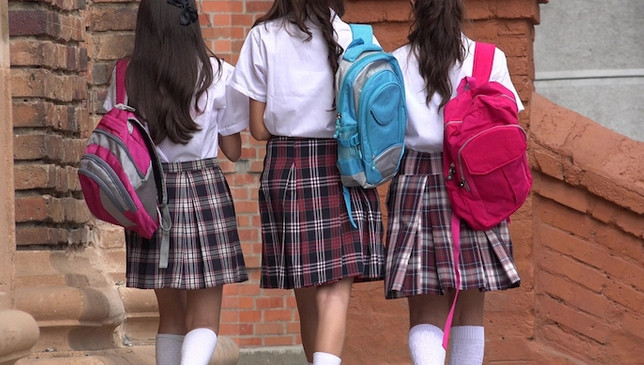
Framing is crucial when persuading the U.S. Supreme Court to take or avoid a case. This is evident in the recent brief filed by the U.S. Justice Department in response to a petition by a North Carolina charter school, which had its skirts-only dress code ruled unconstitutional.
The school and its allies have portrayed the case to the Supreme Court as a critical moment for the nationwide charter school movement. They are urging the justices to review the ruling by the 4th U.S. Circuit Court of Appeals, which declared the school's private operator, Charter Day School Inc, as an entity of the state and therefore subject to claims that its dress code violated the Equal Protection Clause of the 14th Amendment. (It's worth noting that the school's founder, advocating for the skirts-only policy, once made controversial remarks about women being "a fragile vessel that men are supposed to take care of and honor.")
Charter Day and its supporters, including the attorneys general of Texas, Virginia, and eight other states, argue that if the Supreme Court does not reverse the 4th Circuit's ruling that the school is a state actor, educational innovation will be hindered. Parents will lose the ability to choose public schools that offer alternative education options. Charter Day counsel Aaron Streett of Baker Botts emphasized the importance of the case, stating, "This case is critical."
However, the Justice Department holds a different perspective. Echoing arguments made by the American Civil Liberties Union (ACLU) Foundation, which represents parents and guardians challenging the school's dress code, the Justice Department argued in its brief that there is no need to review a decision that is based on one state's specific legislative and constitutional framework for charter schools.
According to the Justice Department, the underlying ruling is narrow and fact-specific, so even the 4th Circuit might reach a different conclusion when considering whether charter schools in other states within its jurisdiction can be sued for violating the Equal Protection Clause. Furthermore, the Justice Department emphasized that the decision only applies to charter school policies related to core educational functions in North Carolina.
In essence, the Justice Department contends that the charter school and its allies have exaggerated the policy implications of a decision that is, in reality, limited and might not be the final word in this case. It's worth noting that the parents also have an active claim that Charter Day violated the federal statute prohibiting sex discrimination in schools receiving federal funding.
In its opposing brief on December 7, the ACLU highlighted the case's narrow scope, asserting that it does not present an important question because it only pertains to one state's unique charter school system.
Ironically, the ACLU seeks to downplay the impact of their case. In response to the Justice Department's brief, the ACLU reiterated the limited nature of their victory for parents and guardians opposing the skirts-only policy, stating, "We're pleased the Justice Department again recognized what we know to be true: Public charter schools in North Carolina are public schools. There is no reason to disturb the public status of charter schools in North Carolina or to strip thousands of North Carolina students of their constitutional rights."
Charter Day's counsel, Aaron Streett, did not respond to an email seeking comment on the Justice Department's brief, which was filed in response to the Supreme Court's request for the government's view. However, the school's reply brief refuted similar arguments made by the ACLU's clients, asserting that the 4th Circuit's decision would impact not only charter schools across the country but also faith-based charities that could fall under the 4th Circuit's definition of a state actor.




